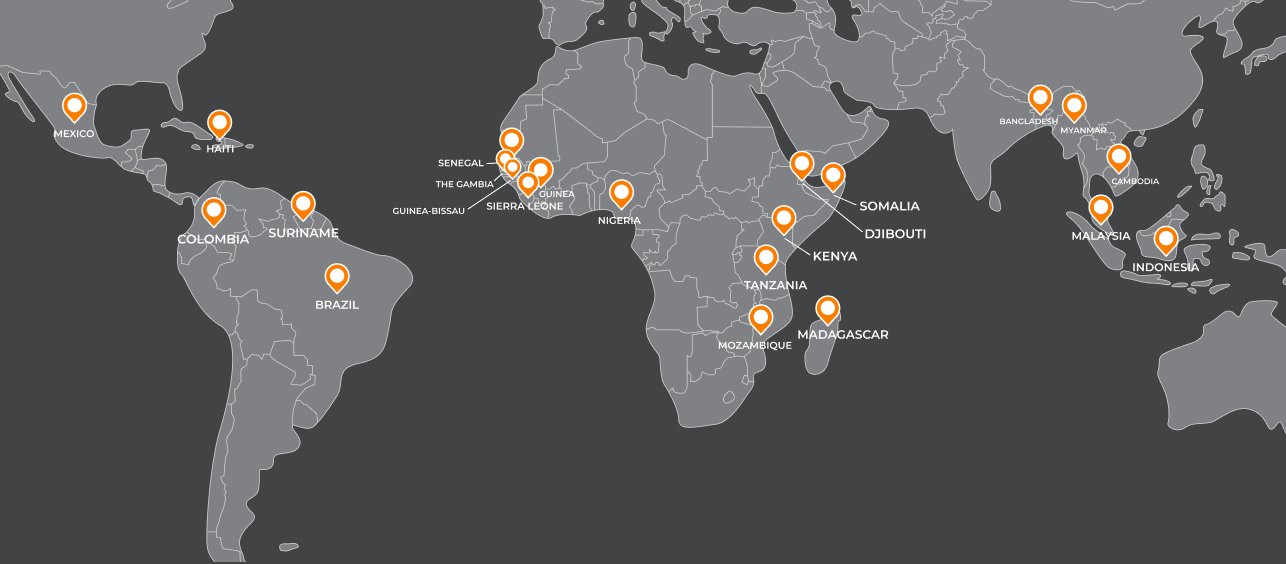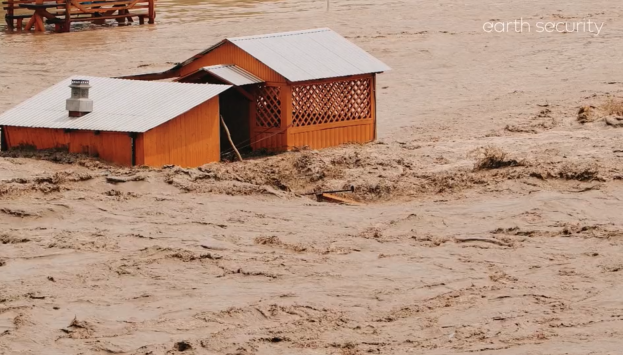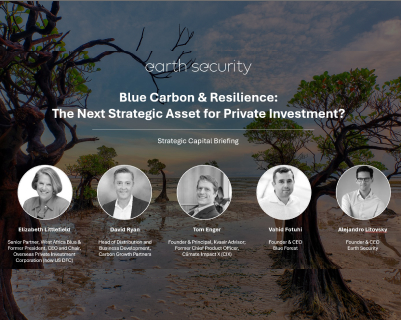Earth Security Group CEO and Founder, Alejandro Litovsky, recently wrote this piece for HuffPost. The article has been shared with the author’s permission.
Alejandro Litovsky, Contributor, 30th May 2017
Steel companies have had to deal with great economic pressures over the past year. China’s over-capacity has sent ripples across the global economy. But big sustainability challenges for the sector — air pollution and the market’s demand for reducing carbon emissions – have also continued to grow. ‘There is nowhere to hide, and that’s a good thing’ said Paolo Rocca, Chairman and CEO of Techint Group at the World Steel Association, ‘openness will make the steel industry stronger and sustainable.’
A commercial imperative is kicking in. Steel is closely linked to many industrial sectors that are vital to the transition to a sustainable economy, from buildings and infrastructure, to electronics, automotive and renewable energy industries. But in order to build greener buildings, cars and power stations, these steel customers are having to minimise the carbon footprint of their value chains. Linking sustainability to business growth is vital to the future of steel companies as customers look harder at the ‘carbon premiums’ of the steel they buy. Just being more transparent and open about a company’s impacts will not be enough to remain competitive in this changing context.
Sustainable goals as drivers of competitiveness
The UN Sustainable Development Goals (SDGs) provide steel companies with a universal framework for measuring and communicating the value that companies bring to society. The shortcoming is that the SDGs are being referenced by corporate reports to show what companies are doing to ‘contribute’ to society, not what they are doing to rethink their growth path.
Three opportunities for steel companies to use the SDGs to frame a new kind of thinking about the industry’s sustainable growth:
- New customers for more sustainable steel. SDG 9 seeks to “build resilient infrastructure, promote sustainable industrialisation and foster innovation.” One of its targets seeks to ‘upgrade infrastructure and retrofit industries to make them sustainable, with increased resource-use efficiency and greater adoption of clean and environmentally sound technologies and industrial processes.’ One example of how steel companies can contribute to this goal by opening new opportunities is Tata Steel’s processed steel slag. This cost-effective product based on maximising resource-use efficiency, has been accredited in India for use in the building of roads, making it the first steel company in India to have obtained this approval. This accreditation will allow Tata Steel to supply processed steel slag on a trial basis for the construction of approved stretches in National and State highways.
- Deepening circular industrial processes. SDG 12 seeks to “ensure sustainable consumption and production patterns.” Among the goal’s targets is to ‘achieve the sustainable management and efficient use of natural resources.’ As one of the world’s most recyclable materials, steel is in a unique position to be a driver of a circular economy. According to the Ellen MacArthur Foundation, the global net material savings through adopting circular economy approaches in steel could add up to more than 100 million tonnes of iron ore in 2025 if applied to a sizeable part of the material flows (i.e. in the steel-intensive automotive, machining, and other transport sectors). One example of how companies are creating business benefits by aligning to this goal is Outokumpu. According to the UN Global Compact, the Finnish producer of stainless steel has focused on recycling scrap steel as a means to replace natural resources. Performance indicators focus on avoiding repeated process steps when scrap has to be brought back for melting, the most energy intensive production step, and therefore focusing on driving down costs and increasing profit margins through circular approaches.
- Convening a Steel Sustainability Initiative to accelerate opportunities. SDG 17 seeks to “revitalise the global partnership for sustainable development.” Developing new market opportunities based on sustainability principles can be accelerated through pre-competitive industry cooperation. A Steel Sustainability Initiative (SSI) would bring steel companies together to work on business-driven solutions to issues like increasing recycling-based production models, renewable energy commitments and building the business case for steel’s role in the green infrastructure of the 21st century. A successful example of such a platform has been developed by the cement industry. The Cement Sustainability Initiative (CSI), convened by the World Business Council for Sustainable Development, is a global effort by 18 leading cement producers with operations in more than 100 countries. Collectively, these companies account for about 30% of the world’s cement production. Over its 10-year history, the CSI has focused understanding, managing and minimising the impacts of cement production and use by addressing a range of issues, including: climate change, fuel use, employee safety, airborne emissions, concrete recycling and quarry management.
Beyond transparency, new visions of change
A resource-stressed world presents huge public and market pressures for steel companies. It will not be enough for companies to be incrementally efficient and transparent on energy and emissions. New visions are needed to show the competitive role that steel companies will play in supplying the 21st century’s technologies and infrastructures.
From procuring 100% renewable energy for manufacturing, to implementing circular production models that based on the recycling of steel, or developing new product applications to support greener infrastructure projects. Some of these innovations are already being implemented by companies but not properly communicated, others are still there to be seized.
A ‘Steel Sustainability Initiative’ can further support companies to collaborate on accelerating such opportunities as they the embrace new paradigm of sustainable business.
Explore the reports
The Earth Security Index Reports provided in-depth analysis of critical themes across selected industries and market geographies, enabling investors to anticipate and respond to emerging global dynamics. Download and explore the full Earth Security Index reports:












































